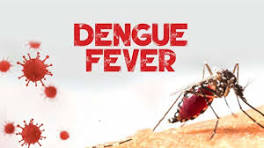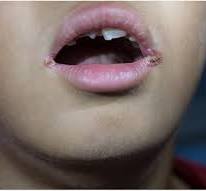INTRODUCTION:
Health is wealth—a simple yet profound truth. One sickness can drain a
lifetime of savings, leaving individuals and families in distress. While modern
medicine has made remarkable strides in diagnosing and treating diseases, many
health conditions continue to defy medical solutions, pushing us to explore
alternative approaches.
Natural remedies have been a cornerstone of healing for centuries, long before
the advent of modern pharmaceuticals. Across cultures and civilizations, people
have relied on nature’s gifts—herbs, roots, fruits, and holistic practices—to
restore health and vitality. While this encyclopedia does not seek to undermine
the importance of medical science, it aims to complement it by shedding light
on time-tested natural solutions. It encourages further research into the power of
nature in healing, offering insights into remedies that have provided relief to
countless individuals.
Natural Remedy For Black Hairy Tongue (BHT)
Black Hairy Tongue (BHT), also known as lingua villosa or lingua
villosa nigra, is a relatively harmless oral condition characterized by
the elongation and discoloration of the filiform papillae on the tongue’s
surface. These tiny projections can trap bacteria, food particles, and
dead cells, giving the tongue a black, brown, or yellowish appearance.
Though it is typically benign, BHT can be aesthetically unpleasant and
may cause bad breath or altered taste. Fortunately, a combination of
natural remedies and improved oral hygiene can help manage and
gradually reverse the condition. Below are several effective and
accessible home treatments:
1. Tongue Scraper
How it works: Regular use of a tongue scraper helps
remove the accumulated debris, dead cells, and bacteria that
contribute to the discoloration.
Usage: Gently scrape your tongue from back to front once
or twice daily. Tongue scrapers are widely available at
pharmacies, supermarkets, and dental clinics. Always clean
the scraper thoroughly after each use.
2. Aloe Vera Gel
How it works: Aloe vera possesses soothing, anti-
inflammatory, and antimicrobial properties that can help
reduce bacteria and irritation on the tongue.
Preparation and usage: Apply a small amount of pure aloe
vera gel directly to your tongue using a clean finger or
cotton swab. Let it sit for a few minutes before rinsing your
mouth thoroughly with water. Repeat 2–3 times daily for
best results.
3. Baking Soda Mouth Rinse
How it works: Baking soda (sodium bicarbonate)
neutralizes acids in the mouth and has mild antibacterial
properties, which can help reduce the buildup on the tongue.
Preparation and usage: Mix 1 teaspoon of baking soda in
a glass of warm water. Swish the solution in your mouth for
30 seconds to 1 minute, then spit it out. Use this rinse 2–3
times per day.
4. Salt Water Rinse
How it works: Salt acts as a natural antiseptic, helping to
reduce bacterial growth and promote oral cleanliness.
Preparation and usage: Dissolve 1⁄2 teaspoon of salt in a
cup of warm water. Rinse your mouth thoroughly for 30–60
seconds, then spit it out. Repeat this process 2–3 times daily.
5. Probiotic Yogurt
How it works: Probiotic yogurt contains beneficial live
cultures that help restore a healthy balance of bacteria in the
mouth and gut, potentially reducing tongue discoloration.
Usage: Eat plain, unsweetened probiotic yogurt daily as part
of your diet. It promotes a healthier oral microbiome and
may help reduce the recurrence of BHT.
6. Proper Hydration and Daily Oral Hygiene
How it works: A dry mouth can worsen BHT. Staying
hydrated supports saliva production, which naturally
cleanses the mouth. Meanwhile, consistent oral hygiene
prevents buildup.
Usage: Drink sufficient water throughout the day. Brush
your teeth and tongue at least twice daily using a soft-bristle
toothbrush. Avoid harsh scraping or brushing, which can
irritate the tongue further.
7. Chlorophyll Supplements
How they work: Chlorophyll, a natural compound found in
green plants, is believed to have deodorizing and
detoxifying effects. It may help combat the bad breath and
discoloration associated with BHT.
Usage: Before starting chlorophyll supplements, consult a
healthcare provider to ensure they are appropriate for you.
Follow the recommended dosage if approved.
Key Consideration
Black Hairy Tongue usually resolves with improved oral hygiene and
lifestyle adjustments. However, if symptoms persist, worsen, or are
accompanied by other concerns such as pain or difficulty swallowing,
it’s important to consult a dentist or medical professional for
evaluation. BHT can sometimes be linked to factors such as antibiotic
use, smoking, poor oral hygiene, or excessive coffee/tea consumption,
all of which may need to be addressed in conjunction with these
remedies.



